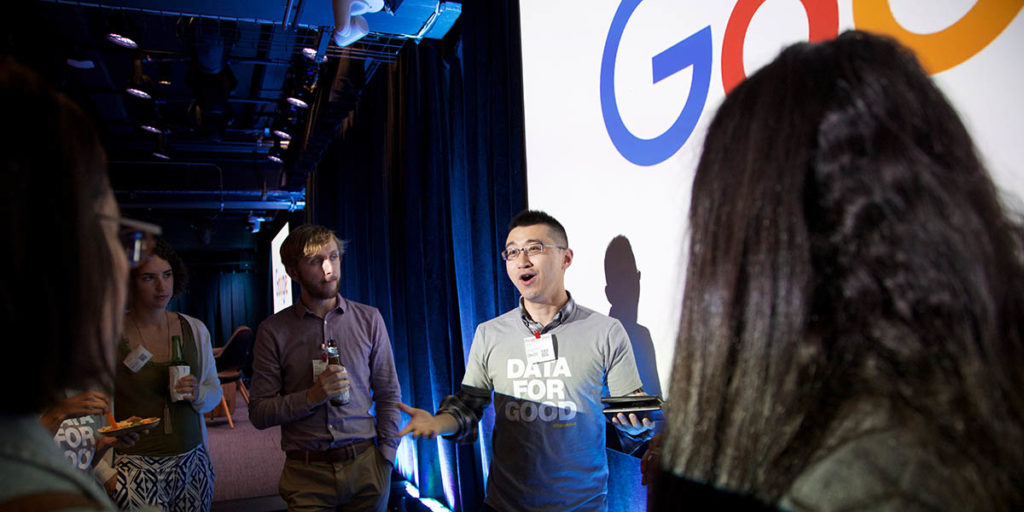You too can be a sexy data unicorn — and other lessons from my first DataDive
Here are 5 surprising things I learned while covering a DataDive hackathon at Google’s NYC headquarters

On opening night, data scientist Shubin Li, a Data Ambassador for DataKind, talks with volunteers about the projects they can work on. (Photos by Alison Bert)

Alison Bert is Executive Editor of Strategic Communications at Elsevier. (Photo by Tim Lamorte)
That was me with the camera, taking your picture and pestering you to explain stuff when you emerged from your data scrums. Last month, more than 100 of you spent a weekend at Google headquarters in Manhattan, creating technology solutions for organizations that make sure citizens are included in international development.
It was a DataDive by DataKind, a global nonprofit organization that is “harnessing the power of data science in the service of humanity.” Their DataDives unite tech-savvy volunteers with nonprofits to develop solutions that help the organizations achieve their missions.
With the Elsevier Foundation as a sponsor and several of my Elsevier colleagues volunteering, I was there to do live coverage. After all, my expertise is journalism, and even though I write about my company’s data science and technology initiatives, I certainly had nothing to contribute directly to the DataDive.
Or did I? That leads to my first takeaway.
1. There’s a place for everyone – even those of us with “non-technical” skills.
Many of these volunteers were experts in data science, coding, statistical analysis, and other aspects of technology. That’s usually the case at a hackathon, so I never pictured myself actually participating in one.
But then I heard the organizers inviting people with “non-technical skills” to work alongside these experts. The skills they mentioned included project management, manually classifying data sets, research, Q&A testing and documentation. That got me thinking of other ways us “non-technicals” could contribute.
- Read the full article on Elsevier Connect: “You too can be a sexy data unicorn — and other lessons from my first DataDive“, Alison Bert, 30 July, 2018


















